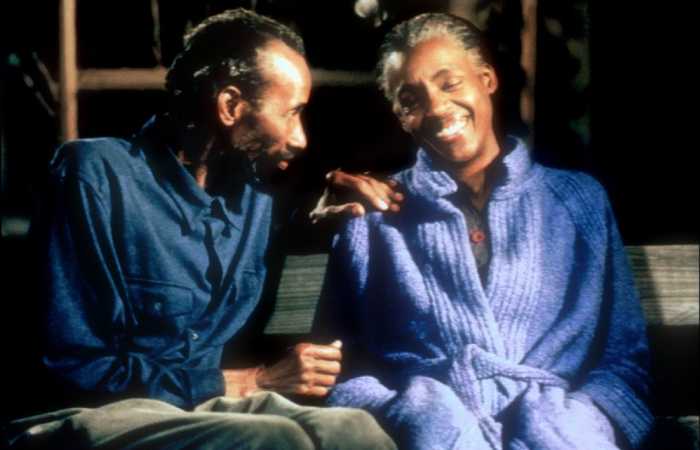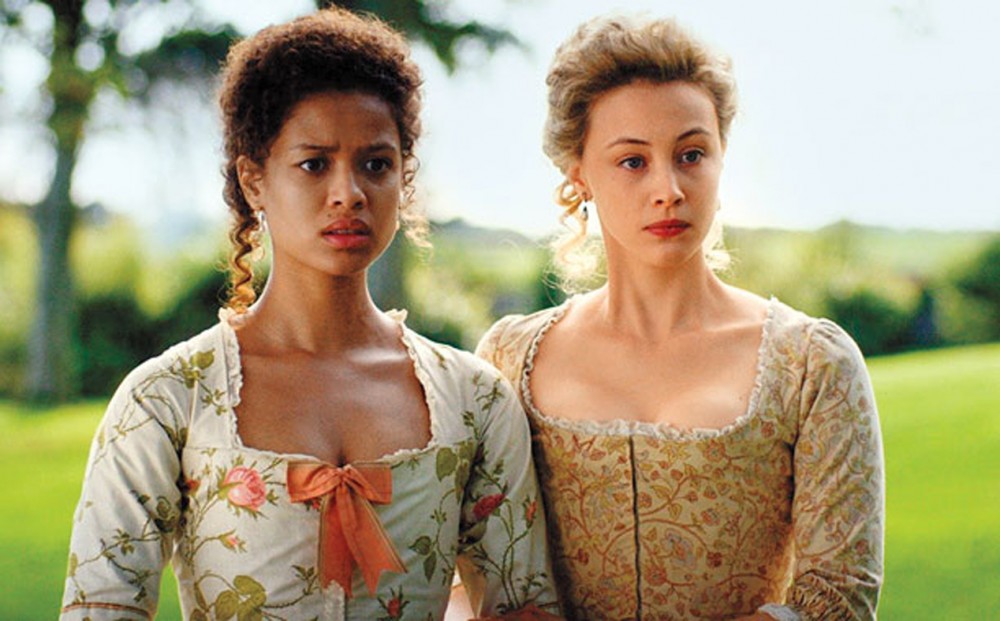So ashamed were some Africans who aided and abetted European Americans in the slave trade that the former kingdom of Dahomey changed its name to Benin. Yet, a simple change in terminology does not erase the era from historical memory. Or from the memory of the continent’s inhabitants.
Alloune (Sotigui Kouyaté), 65, a tour guide in a slave museum in Senegal is so haunted by the recollection of this dishonorable past that he embarks on an unconventional journey from his roots to find its branches – to trace the path of his people who were taken in the Atlantic slave trade and unite with these distant relatives abroad.
Alloune’s first stop is South Carolina. Immersed in the archives, he finds what seems to be a dead end. His relatives’ African names were long dropped in exchange for their slave owner’s names. But lucky for Alloune, white slave owners kept detailed records of their inventory – black bodies.
Which brings him to Harlem, New York – to a neighborhood called Little Senegal. His first encounter with his relative, Ida (Sharon Hope), is not a long-awaited hugs-and-kisses reunion. Quite the contrary, Ida takes an immediate disliking to Alloune, since she doesn’t too much trust Africans.
With each passing day, Alloune witnesses first-hand how Africans and their estranged African American relatives are at a great distance – obviously geographical, but more detrimentally cultural. Alloune doesn’t recognize much of anything “African” in Little Senegal. The family structure is broken in part due to irresponsible “fathers” but also evident in Ida, in her old age, living alone.
Alloune tells her: “In Africa you are never alone.”
Ida emphatically replies: “I don’t know anything about Africa… If things were better over there, you probably wouldn’t be here.”
At this point, Ida doesn’t know what brought Alloune to Harlem.
And in a way, his motive is irrelevant. She stands much to gain from re-connecting with her African roots. But it is a two way street. Africans as well need to be proactive.
That Door of No Return that centuries ago passed Africans from freedom to slavery, never to come back, now is a revolving door. Alloune has made the journey to reconnect and the film suggests that others should as well.
Problems that plague Ida and her community – broken families, unplanned pregnancies, and economic instability – cannot be solved by one African’s attempt to transmit generations of traditional culture in a brief visit. Filmmaker Rachid Bouchareb is careful not craft a storybook ending.
Opting for reality over romanticism, Bouchareb weaves a quiet story of great contemporary significance and social relevance that touches briefly on the state of African immigrants in America and unlike most films examines the relationship of the African and African American under a critical lens. Too critical perhaps to have commercial potential in the U.S., but sophisticated enough to balance a touching narrative with a healthy dose of history.
‘Alloune at the slave museum’
‘Alloune meets Ida’
‘Alloune comforts Ida’
Director: Rachid Bouchareb
Writers: Rachid Bouchareb and Olivier Lorelle











I thought this was a great film. I great film by many standards – sad we can get more folks to see these kind of films because theaters in our own communities are owned by the other people.
do Africans really give a sh*t about African-Americans? this film makes it look like, the Africans who sold their own people into slavery now want to make amends when they still don’t give a sh*t about their people who live in African right now?
– u referring to the politicians? Politicians everywhere do not seem to care for nobody – but I think there’s a sincere attitude about Africans wanting to feel a kinship with their African-American kin. I am not sure if the vice versa is true.
Just found you guys, this is great! What I can say is that this film moved me in many ways than one. It is a completely sincere film about we African American’s attitudes towards Africans and our history before slavery. I guess that the blame is on our educational system in America, which we do not control or structure ourselves, that we do not learn a thing about Africa and when we do it is all bad – Africa the dark continent, Africa the land of the apes and savages, Africa the land of cannibals and stupid sh-t of that nature. Why wouldn’t we be hostile towards it?
If you are going for finest contents like
I do, simply visit this website all the time as it provides quality
contents, thanks
Hi, i think that i saw you visited my blog so i came to “return the
favor”.I’m trying to find things to enhance my web site!I suppose its ok to use some of your ideas!!
I’m really enjoying the theme/design of your weblog. Do you ever run into any browser compatibility issues? A couple of my blog readers have complained about my website not working correctly in Explorer but looks great in Chrome. Do you have any advice to help fix this issue?
Thanks for the guidelines shared on your blog. Something
else I would like to say is that losing weight is not supposed to be about going on a dietary
fads and trying to reduce as much weight as possible in a set period of time.
The most effective way to burn fat is by taking it gradually and
obeying some basic guidelines which can provide help to make the most out of
your attempt to shed weight. You may know and already be following these
tips, yet reinforcing information never does any damage.
Here is my blog; Mari